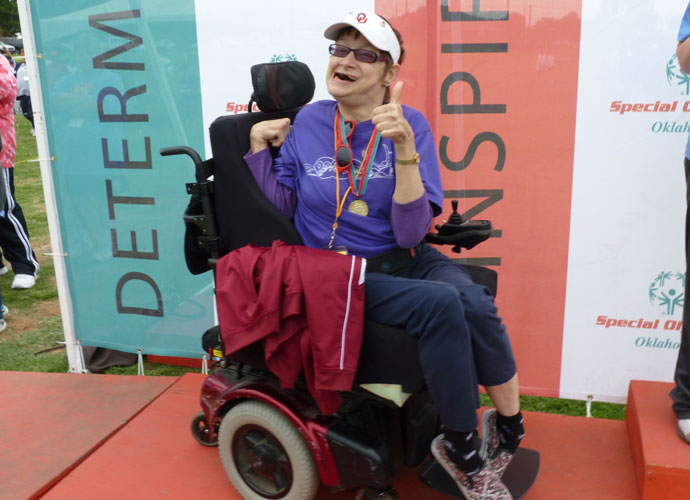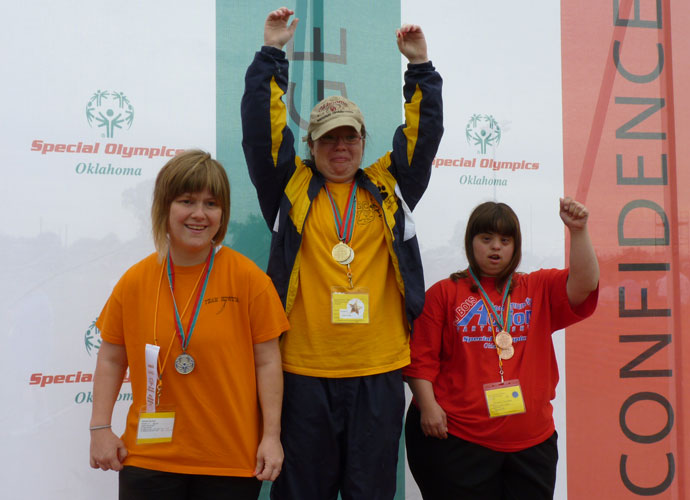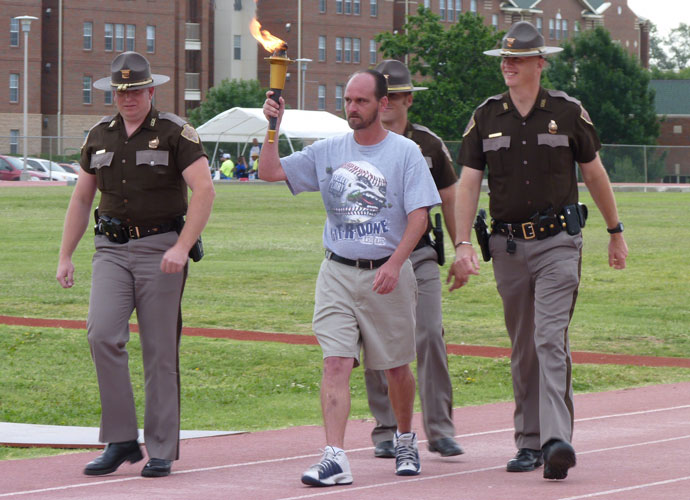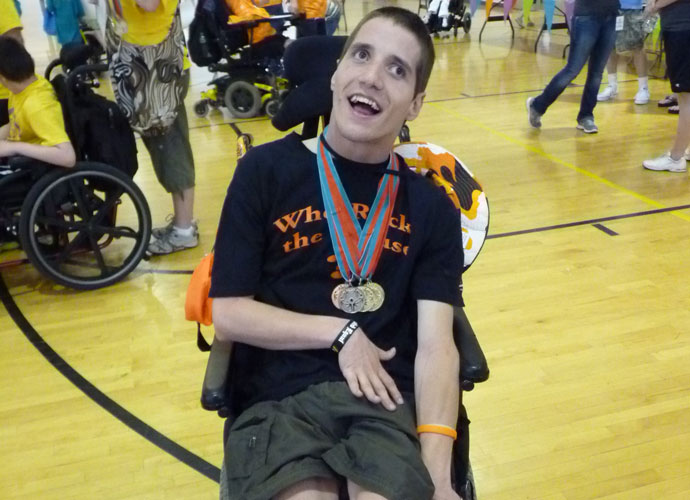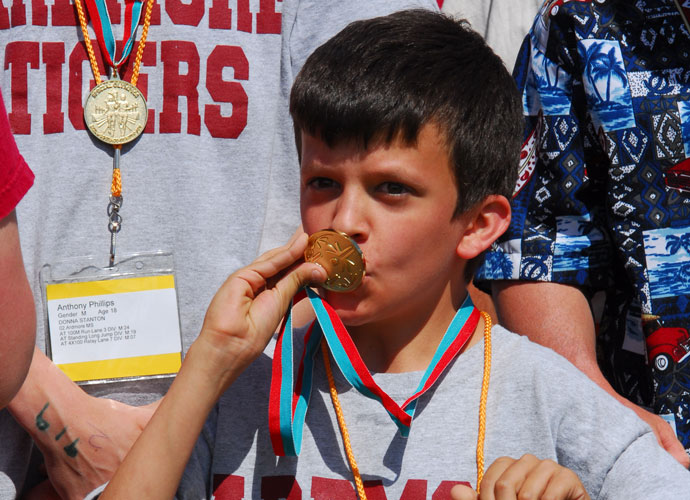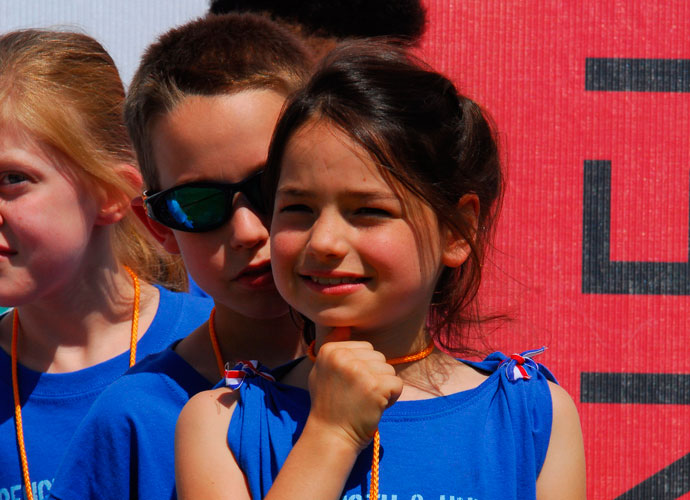Special Olympics Oklahoma History
Special Olympics was founded by Eunice Kennedy Shriver. The first International Special Olympics Games were held in 1968 at Soldier Field in Chicago. There are programs in all 50 states and more than 3.7 million athletes in 229 Accredited Special Olympics Programs across more than 170 countries worldwide with 7 regional offices around the world, located in China, Egypt, Ireland, Panama, Singapore, South Africa and the United States. Special Olympics, Inc. is a non-profit international organization located in Washington, DC.
Oklahoma’s first Special Olympics event was an athletics competition at the University of Tulsa in 1969. In 1972, Special Olympics Oklahoma was incorporated as a 501(c)(3) non-profit organization and is governed by a state-wide Board of Directors. Special Olympics Oklahoma is authorized and accredited by Special Olympics, Inc., for the benefit of citizens with intellectual disabilities.
Mission Statement
The mission of Special Olympics is to provide year-round sports training and athletic competition in a variety of Olympic-type sports for children and adults with intellectual disabilities, giving them continuing opportunities to develop physical fitness, demonstrate courage, experience joy and participate in a sharing of gifts, skills and friendship with their families, other Special Olympics athletes and the community.
The Goal
The goal of Special Olympics is for all persons with intellectual disabilities to have the opportunity to become useful and productive citizens who are accepted and respected by their families, friends and in their communities.
Benefits
Athletes carry the benefits from their involvement in Special Olympics with them in their daily lives at home, in the classroom, on the job and in the community. Families are strengthened and the community increases its understanding, acceptance and respect of these individuals.
- Local Donation Stations for dropping off accepted items.
- Conveniently located Donation Boxes for clothing, etc.
- Schedule a pick up time for larger items


